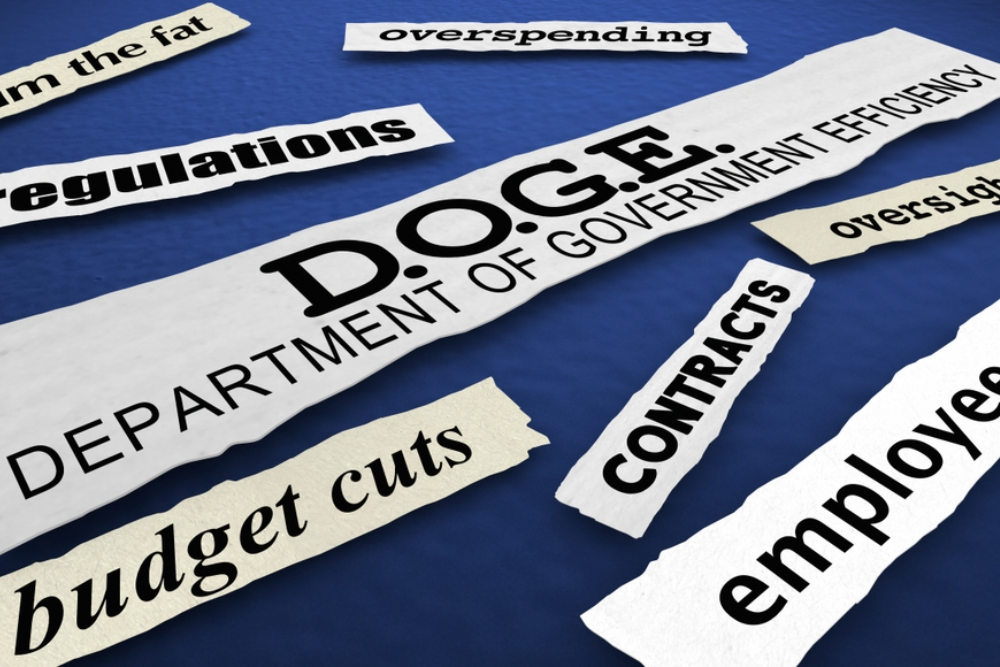As conversations intensify across social media platforms, investment executive James Fishback’s proposal suggesting Black Americans might receive a $5,000 tax refund has generated significant interest. This initiative, dubbed the “DOGE Dividend,” proposes using savings from the Department of Government Efficiency to provide financial relief to taxpayers, raising questions about its implications for Black communities.
Understanding the DOGE dividend proposal
Fishback, reportedly an advisor to the unofficial Department of Government Efficiency led by Elon Musk, outlined his concept titled “The Case for a DOGE Dividend” on his X account. According to his proposal, this dividend would function like a tax refund check distributed to American taxpayers after DOGE concludes operations in July 2026.
The funding mechanism would allocate 20 percent of DOGE’s projected $2 trillion in savings, potentially resulting in approximately $5,000 for each of the estimated 79 million tax-paying households in America.
Building taxpayer trust: Fishback suggests this initiative could strengthen relationships between citizens and government, potentially encouraging Americans to report government waste and inefficiency, further reducing public spending.
Musk’s potential influence
The proposal gained additional attention when Elon Musk responded to Fishback, indicating he would discuss the feasibility with the president. While Musk holds no elected office, his considerable influence might determine whether this proposal advances beyond conceptual stages.
Economic implications for Black communities
A DOGE Dividend could deliver meaningful financial support to many Black Americans currently facing economic challenges. Recent data from Achieve indicates 76 percent of Black consumers live paycheck-to-paycheck, with 43 percent struggling to cover basic expenses. Rising inflation and increased living costs have intensified these financial pressures.
Historical context of financial relief: Previous financial relief programs demonstrate their significance in Black communities. During the COVID-19 pandemic, stimulus payments became essential lifelines, with a disproportionate percentage of Black Americans using these funds for housing stability compared to white recipients.
Critical concerns about implementation
Despite potential short-term benefits, significant questions remain about long-term consequences. Critics highlight concerns that funding for the dividend might reduce federal employment and essential services supporting Black communities.
Potential federal workforce impact: According to Pew Research, Black workers constitute 18.6 percent of federal government employees. Significant budget reductions to finance the DOGE Dividend could disproportionately impact Black federal workers through potential job losses.
Essential services at risk: The initiative raises concerns about continued funding for agencies providing critical services to Black communities. Programs supporting education, housing access, and healthcare accessibility might face reduced resources, potentially creating greater economic challenges over time.
Weighing immediate relief against long-term consequences
The DOGE Dividend represents a complex proposition for Black Americans – offering immediate financial assistance while potentially undermining employment opportunities and essential services. As discussions continue, communities must carefully evaluate both benefits and risks associated with this proposed financial initiative.
Black households, already navigating significant economic pressures, must consider whether short-term financial relief outweighs potential long-term service reductions. Community leaders have begun raising questions about whether alternative approaches might deliver more sustainable economic improvements without compromising existing support systems.
Looking toward implementation challenges
If advanced, implementing the DOGE Dividend would require navigating complex fiscal and administrative challenges. Questions remain about eligibility requirements, distribution mechanisms, and verification processes. Previous stimulus payment programs demonstrated significant challenges in reaching unbanked populations, which disproportionately include Black households.
Timeline uncertainties: With DOGE scheduled to conclude operations in July 2026, any resulting dividend would not provide immediate financial relief. This delayed timeline raises questions about addressing current economic challenges facing Black communities.
Community perspectives emerging
As information about the proposal spreads, diverse perspectives have emerged from economic analysts, community organizers, and policy experts. Some emphasize the transformative potential of direct financial support, while others question structural changes that might better address wealth disparities.
Economic justice advocates have noted that while direct payments provide valuable support, addressing systematic barriers to wealth accumulation remains essential for sustainable improvements in Black economic wellbeing.
Broader context of economic policies
The DOGE Dividend discussion occurs against a backdrop of ongoing conversations about appropriate economic policies to address racial wealth gaps. Research consistently demonstrates substantial disparities, with Federal Reserve data showing the typical white family possessing eight times the wealth of the typical Black family.
This proposal represents just one approach among many potential policies aimed at addressing persistent economic inequities. Other frequently discussed approaches include targeted small business support, homeownership assistance programs, and educational investments.
Future developments
As discussions continue regarding the DOGE Dividend, Black communities, policymakers, and economic analysts will likely examine both immediate benefits and potential long-term consequences. The proposal’s ultimate impact depends on implementation details, accompanying policies, and whether it addresses or potentially exacerbates existing economic disparities.
While a $5,000 payment would provide welcome relief to many households, the broader conversation necessarily includes examining whether such one-time payments represent the most effective approach to addressing persistent economic challenges facing Black Americans.
















